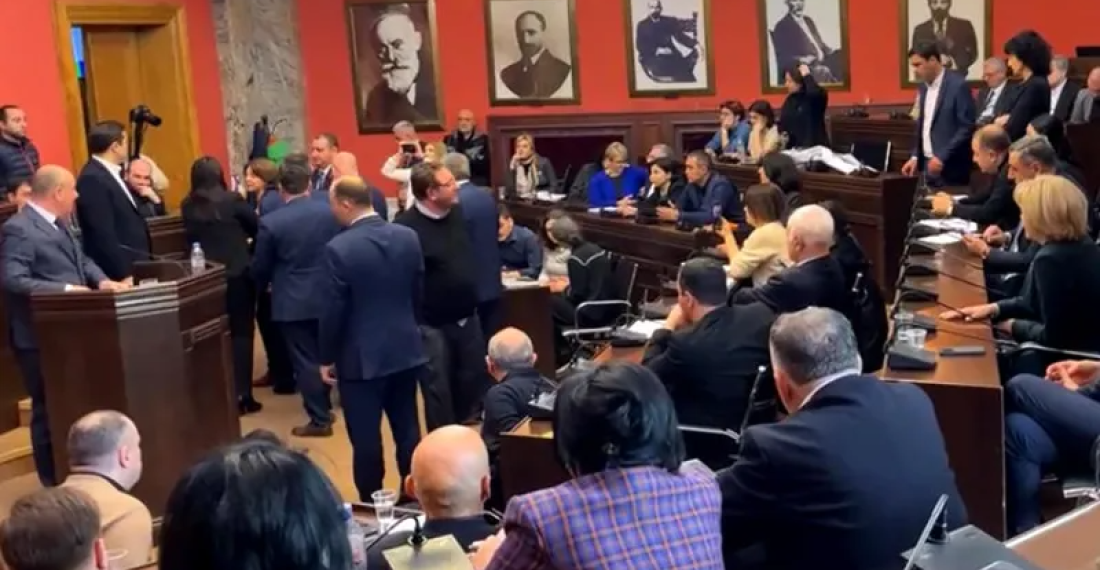Georgian MPs have resumed discussing a draft law on "foreign agents" amid large protests in Tbilisi and even scuffles between politicians inside the committee room. The draft law was introduced on 14 February by a group of pro-government MPs who formally left the ruling Georgian Dream party last year.
The draft law, which copies a similar law infamously introduced in Russia in 2012, would brand media, NGOs, and other civil society organisations that receive more than 20% of their funding from foreign sources as "agents of foreign influence".
This would require them to register in a Foreign Influence Agents Registry, and failure to do so would result in fines of up to 25,000 laris (€8,960).
Protests outside parliament and scuffles inside parliament
During discussions on Monday (6 March), a large crowd gathered at the back of the Georgian parliament to protest against the proposed law. According to OC Media journalist Mariam Nikuradze who was at the protest, protesters chanted "Russians", waved EU and Georgian flags, some taped their mouths shut, and one threw eggs at the building.
Inside parliament, some opposition MPs were removed from the sitting of the Parliamentary Committee on Legal Affairs after physical confrontation between lawmakers.
The chairman of the committee, Anri Okhanashvili, requested the removal of several deputies from the hall due to shouting from their seats. This then led to the chairman of the United National Movement Levan Khabeishvili physically confronting Orkhanashvili, leading to larger scuffles.
Later, Salome Samadashvili, Khatuna Samnidze and Tamar Kordzaia were also removed from the sitting, having previously been warned about disruption by the chairman, according to reports.
Anti-NGO posters appear in Tbilisi, UNM leader says they will "physically fight" to prevent law
Following strong public criticism of the law, including from the Georgian President Salome Zourabichvili, EU and US representatives, posters have appeared around Tbilisi depicting civil society representatives as "slanderers of the Church", and part of the opposition as "stateless traitors".
After the morning's events on Monday, UNM leader then addressed the crowd of protesters outside parliament from a balcony saying that his party would "physically fight" to prevent the foreign agent law from being passed.






